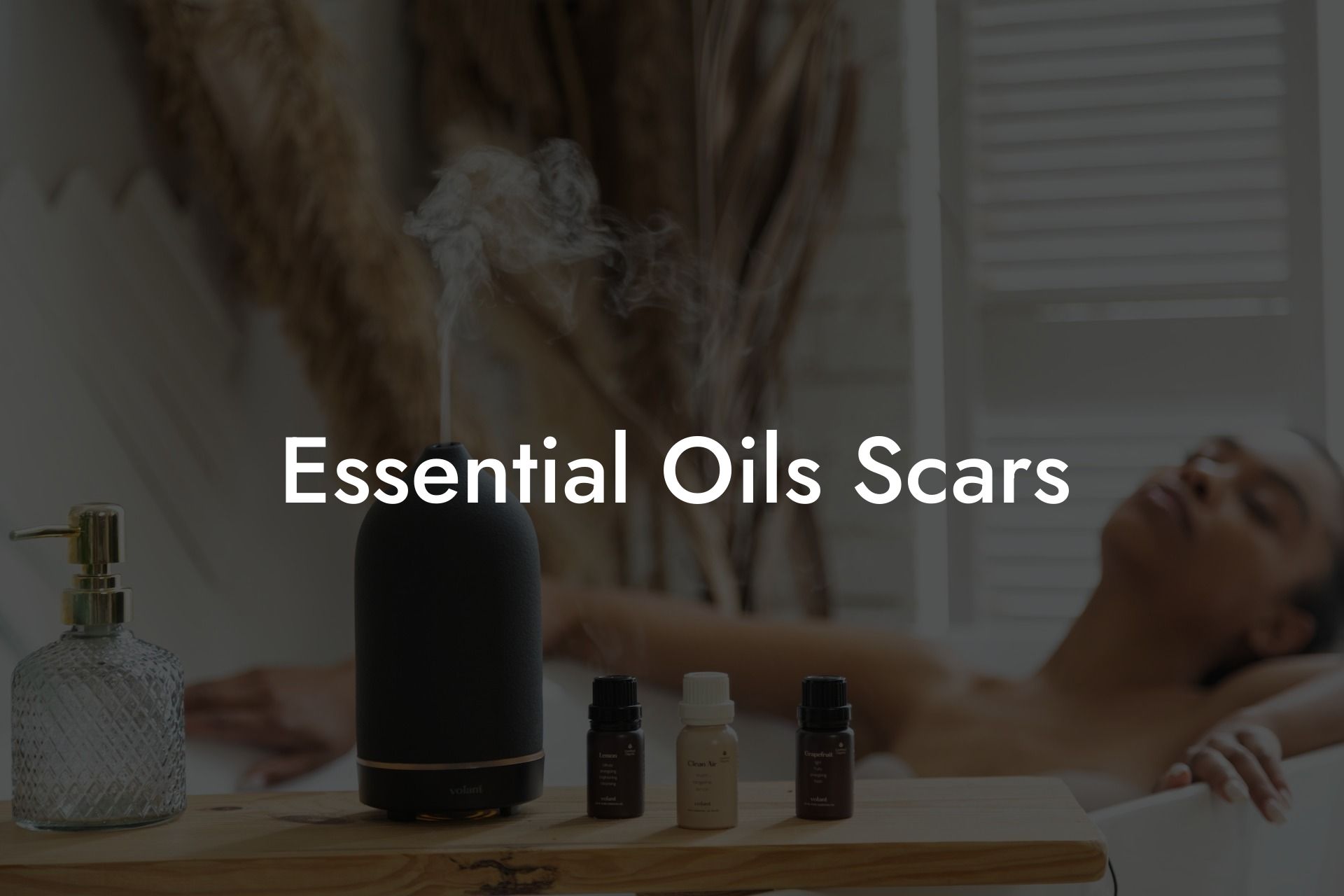Scars can be a painful reminder of past injuries or surgeries, but did you know that essential oils can help reduce their appearance and even promote healing? Oshu Oils’ Essential Oils Scars guide will walk you through the world of essential oils and their incredible power to improve the look and feel of your scars.
Table of Contents
The Wonders of Essential Oils for Scars
Essential oils have been used for centuries for their healing properties, and today, science is catching up with the ancient knowledge. Essential oils can effectively improve the appearance of scars and promote the healing process. In this guide, we will explore the best essential oils for scars and how to use them.
The Top Essential Oils for Scars
There is a wide range of essential oils that can potentially help with scars, but some are more effective than others. These are the top essential oils for scars:
- Lavender Oil: This versatile oil is widely used for its powerful regenerative properties, helping to reduce the appearance of scars by promoting cell growth and skin repair.
- Helichrysum Oil: Known for its anti-inflammatory and cicatrisant (skin healing) properties, Helichrysum oil can help minimize scarring and accelerate repair.
- Frankincense Oil: This ancient oil has incredible scar-fighting capabilities, thanks to its anti-inflammatory, tissue-regenerating, and astringent properties.
- Rosehip Seed Oil: With its high content of essential fatty acids and vitamin A, Rosehip Seed oil can help improve skin elasticity and promote the formation of new, healthy skin cells.
- Tea Tree Oil: Known for its antimicrobial and anti-inflammatory properties, Tea Tree oil can prevent infection during the healing process, reducing the risk of scarring.
How to Use Essential Oils for Scars
Before you begin using essential oils for scars, it’s essential to understand how to use them safely and effectively. Here are some tips and precautions to keep in mind:
- Always dilute essential oils with a carrier oil, such as coconut oil, jojoba oil, or sweet almond oil.
- When using oils for the first time, perform a patch test on a small area of skin to ensure you don’t have an allergic reaction.
- Avoid using essential oils on open wounds or on fresh scars – wait until the incision or injury is fully healed.
- Be patient – natural remedies like essential oils may take time to show results. Use them consistently and give them time to work.
Essential Oils Scars Example:
Let’s imagine that you have a prominent scar from a surgery on your arm. To use essential oils for this scar, you’ll want to create a blend with the recommended essential oils. Start by adding the following to a small glass bottle:
- 5 drops of Lavender oil
- 5 drops of Helichrysum oil
- 5 drops of Frankincense oil
- 5 drops of Rosehip Seed oil
Mix the oils together and add 30 mL of a carrier oil (such as Jojoba oil) to dilute the essential oils. Apply a small amount of the blend to the scar twice a day, gently massaging it in with circular motions. This can help increase circulation and promote healing. Remember always to use a patch test first and be patient as the essential oils work over time.
Scars can impact our self-confidence and serve as a constant reminder of past events. However, embracing the power of essential oils can improve the appearance of scars while promoting healing. Share this Essential Oils Scars guide with friends or family who may benefit from the knowledge, and continue exploring other guides here on Oshu Oils for more on the incredible world of essential oils. Take a closer look at our range of Oshu Oils essential earth oils – expertly formulated to support your well-being and elevate your daily rituals.





















